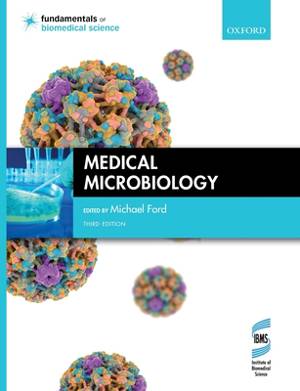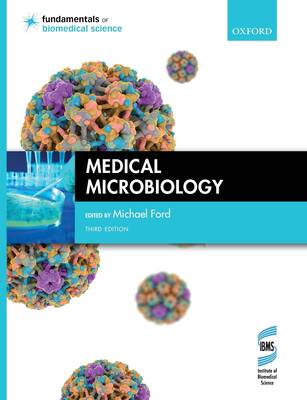
En raison d'une grêve chez bpost, votre commande pourrait être retardée. Vous avez besoin d’un livre rapidement ? Nos magasins vous accueillent à bras ouverts !
- Retrait gratuit dans votre magasin Club
- 7.000.000 titres dans notre catalogue
- Payer en toute sécurité
- Toujours un magasin près de chez vous
En raison de la grêve chez bpost, votre commande pourrait être retardée. Vous avez besoin d’un livre rapidement ? Nos magasins vous accueillent à bras ouverts !
- Retrait gratuit dans votre magasin Club
- 7.000.0000 titres dans notre catalogue
- Payer en toute sécurité
- Toujours un magasin près de chez vous
80,95 €
+ 161 points
Description
Biomedical scientists are the foundation of modern healthcare, from cancer screening to diagnosing HIV, from blood transfusion for surgery to food poisoning and infection control. Without biomedical scientists, the diagnosis of disease, the evaluation of the effectiveness of treatment, and research into the causes and cures of disease would not be possible. The Fundamentals of Biomedical Science series has been written to reflect the challenges of practicing biomedical science today. It draws together essential basic science with insights into laboratory practice to show how an understanding of the biology of disease is coupled to the analytical approaches that lead to diagnosis. Assuming only a minimum of prior knowledge, the series reviews the full range of disciplines to which a Biomedical Scientist may be exposed - from microbiology to cytopathology to transfusion science. The series:
DT Understands the complex roles of Biomedical Scientists in the modern practice of medicine.
DT Understands the development needs of employers and the Profession.
DT Addresses the need for understanding of a range of fundamental sciences in the context of Biomedicine.
DT Places the theoretical aspects of Biomedical Science in their practical context via clinical case studies. Medical Microbiology covers a range of key laboratory techniques used in the diagnosis of important human diseases caused by microorganisms. From sample collection, through to analysis and laboratory investigation, the text covers a wide range of procedures and highlights how and why results are generated. The third edition has been expanded to cover a wider range of topics, including a new chapter on Whole Genome Sequencing and extended coverage of syphilis and MALDI.
DT Understands the complex roles of Biomedical Scientists in the modern practice of medicine.
DT Understands the development needs of employers and the Profession.
DT Addresses the need for understanding of a range of fundamental sciences in the context of Biomedicine.
DT Places the theoretical aspects of Biomedical Science in their practical context via clinical case studies. Medical Microbiology covers a range of key laboratory techniques used in the diagnosis of important human diseases caused by microorganisms. From sample collection, through to analysis and laboratory investigation, the text covers a wide range of procedures and highlights how and why results are generated. The third edition has been expanded to cover a wider range of topics, including a new chapter on Whole Genome Sequencing and extended coverage of syphilis and MALDI.
Spécifications
Parties prenantes
- Auteur(s) :
- Editeur:
Contenu
- Nombre de pages :
- 568
- Langue:
- Anglais
- Collection :
Caractéristiques
- EAN:
- 9780198818144
- Date de parution :
- 30-07-19
- Format:
- Livre broché
- Format numérique:
- Trade paperback (VS)
- Dimensions :
- 189 mm x 246 mm
- Poids :
- 997 g

Les avis
Nous publions uniquement les avis qui respectent les conditions requises. Consultez nos conditions pour les avis.






